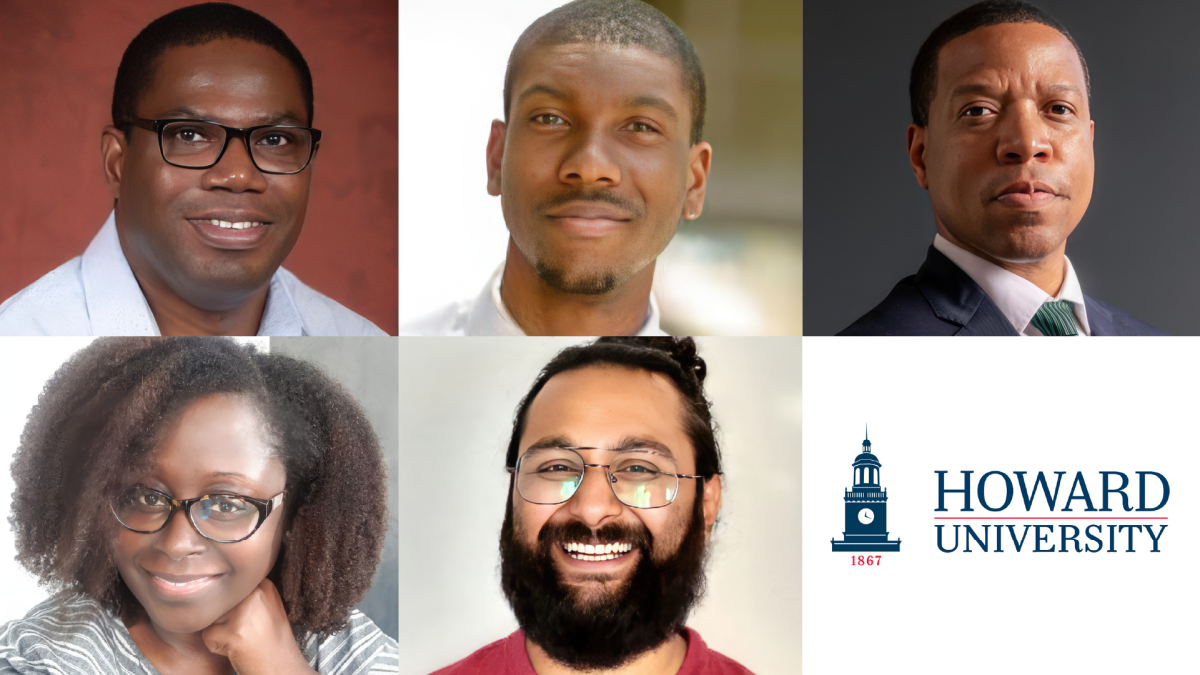As part of a collaboration that was announced and then subsequently expanded earlier this year, Amazon and Howard University have announced the 2023 recipients of their gift project awards and doctoral fellowship. These accolades recognize individuals whose proposed projects fulfill the collaboration’s mission to bring differentiated research to the forefront.
Funded by Amazon and housed in the College of Engineering and Architecture, the gift project awards support faculty research projects with an initial focus on machine learning (ML) and natural-language processing (NLP). The doctoral-fellowship award funds an independent research project conducted by a PhD candidate in ML and NLP.
The recipients’ research connects deeply to the shared mission of Amazon and Howard, emphasizing the need for comprehensive and inclusive advancements in natural-language processing, artificial intelligence, and machine learning.
What follows is a description of the differentiated research projects.
Doctoral-fellowship award

Mikel K. Ngueajio, PhD candidate, Department of Computer Science
“During my journey in graduate school, I developed a deep fascination for leveraging machine learning techniques to understand human language and enhance communication between individuals. This fascination has been driven by my personal philosophy and desire to address underrepresented communities' experiences and promote a more equitable society. By understanding the nuances of language, I aspire to develop ethically fair and human-interpretable technology that can ultimately improve societal communications, particularly for Black and Brown individuals in the United States.
“My PhD research centers on the automated identification of microaggressions (MA) in text. For this purpose, I employ various contextual ML algorithms to examine the impact of context on the performance of models used for detecting offensive speech of similar nature.
“The primary goal of my research is to develop an explainable MA detector capable of analyzing textual data collected from diverse settings such as the workplace, social media, and real-time conversations. By designing and building an automatic MA detector embedded within an application similar to a ‘grammar checker,’ my research aims to mitigate textual MA by identifying and highlighting them within text, as well as suggesting alternative word choices to users, hence promoting more inclusive and respectful communication.”
Gift project awards

Anietie Andy, assistant professor of electrical engineering and computer science, and Legand Burge, professor of computer science: “Gaining insights about the expression and manifestation of anxiety across age groups and genders on social media”
“Anxiety, which is defined as ‘an emotion characterized by feelings of tension, worried thoughts, and physical changes like increased blood pressure’, is comorbid with health conditions such as depression. Anxiety-related support needs may vary across dimensions like an individual’s age and gender and whether an individual experiences anxiety and depression or anxiety but not depression.
“To develop personalized conversational artificial-intelligence (AI) agents that can provide adequate support around anxiety, it is important to first determine the variations and/or similarities in the expression and manifestation of anxiety across these dimensions and how they may or may not change over time. In this work, using social-media data — specifically Facebook — we aim to determine the variations in the expression and manifestation of anxiety across the following dimensions: age, gender, and whether an individual experiences anxiety and depression or anxiety but not depression. From the findings, we will conduct a pilot study to design and implement a personalized conversational-AI agent around anxiety.”
Jeremy Blackstone, assistant professor of electrical engineering and computer science, and Burge: “Gang scheduling for AWS Trainium”
“This project seeks to extend the gang scheduling algorithm by implementing a type of lazy gang scheduling to reduce the idling of resources in a scheduling environment. This is done by introducing two new algorithms that utilize machine learning to manipulate the communication process of running processes in a gang.
“The two algorithms function through separate use of a new state, merge, which functions by holding processes of a gang that are currently not assigned any processors. The performance of the proposed algorithms will be compared to the basic gang implementation, and it is expected that there will be improved metrics across all indicators such as response time, throughput time, and idle time, among others."
Gloria Washington, associate professor of electrical engineering and computer science, and Saurav Keshari Aryal, former lecturer: “FAIR (findable, accessible, interoperable, and reusable) data dissemination and evaluation of the African-American Vernacular English dataset”
“The uniqueness of African-American Vernacular English (AAVE) has proven challenging to automatic-speech-recognition (ASR) technologies due to a lack of available data, limited research in the area, differences in annotations, and regional dialectical differences. To address this dearth in related work and progress, this work will evaluate and benchmark the AAVE start created by Howard University against the current state-of-the-art research models in ASR.”




